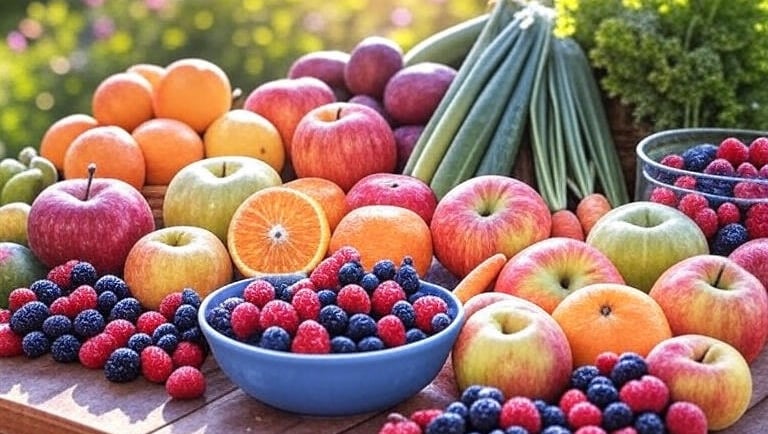Herbal Backer News & Updates: FLASH SALE!!! LIMITED TIME ONLY
Unlocking Nature's Pharmacy: Your Fun Guide to Nutritional Herbology
Hey there, green-thumbed wellness warriors! Imagine if your morning smoothie could double as a superhero cape for your insides—boosting your energy, calming your chaos, and arming your body against everyday battles. That's the effects of Nutritional Herbology, where everyday plants aren't just pretty; they're powerhouse nutrient bombs disguised as nature's candy. If you've ever wondered why your grandma swore by chamomile for nerves or ginger for tummy woes, you're in the right spot.
10/1/20255 min read


Unlocking Nature's Pharmacy: Your Fun Guide to Nutritional Herbology
Hey there, green-thumbed wellness warriors! Imagine if your morning smoothie could double as a superhero cape for your insides—boosting your energy, calming your chaos, and arming your body against everyday battles. That's the effects of Nutritional Herbology, where everyday plants aren't just pretty; they're powerhouse nutrient bombs disguised as nature's candy. If you've ever wondered why your grandma swore by chamomile for nerves or ginger for tummy woes, you're in the right spot. In this post, we're ditching the dry textbook vibes for a breezy stroll through how these herbal heroes work, their superpowers on your body's systems, and why they're worlds apart from pill-popping pharmacology. Plus, we'll geek out on top herbs, sneaky ways to sneak 'em into your routine, and a nudge toward our shiny new Herbal Apothecary Shop. Ready to leaf through some life-changing lore? Let's sprout!
What Is Nutritional Herbology and How Does It Work?
Nutritional Herbology is like the ultimate cheat sheet for turning herbs into your personal nutrition squad. Think of it as studying plants not just for their "medicinal" flair, but for the vitamins, minerals, and phytonutrients they pack—like iron from nettle or calcium from dandelion greens. It's all about using whole herbs (or extracts) as food sources to fill nutritional gaps, support balance, and amp up your body's natural vibes.
At its core, it works through bioavailability: Herbs deliver concentrated nutrients that your body absorbs efficiently because they're in their natural matrix—synergistic compounds that team up like a well-oiled band. Unlike isolated vitamins in a bottle, these plant-based allies nourish holistically, gently nudging systems toward harmony rather than forcing a quick fix. Over time, consistent use builds resilience, from glowing skin to steady energy, by mimicking the nutrient-dense diets our ancestors thrived on. It's preventive, sustainable, and oh-so-delicious when brewed into a tea or tossed in a salad.
How Nutritional Herbology Impacts Your Body's Main Systems
Herbs don't play favorites—they're team players across your body's orchestra. Here's a deep dive into how they tune up the major systems, backed by their nutrient profiles and gentle actions. (Pro tip: Always chat with a pro before diving in, especially if you're on meds.)
Circulatory System (Heart & Blood Flow)
Herbs like garlic and hawthorn are MVPs here, loaded with antioxidants and potassium to keep blood pressure chill and vessels flexible. They reduce inflammation, thin blood naturally (hello, better circulation!), and supply folate for red blood cell production. Result? A happier heart, less plaque buildup, and that post-yoga glow without the crash.
Respiratory System (Lungs & Breathing)
Echinacea and elderberry shine with immune-boosting vitamin C and quercetin, fighting off invaders while easing congestion. These herbs act as expectorants, clearing airways and reducing oxidative stress—perfect for seasonal sniffles or allergy woes. Long-term? Stronger lung resilience and easier breaths during workouts.
Digestive System (Gut & Metabolism)
Ginger and peppermint are gut gurus, rich in digestive enzymes and volatile oils that soothe spasms, cut bloating, and boost nutrient absorption. They balance gut flora with prebiotic fibers, easing IBS-like symptoms and firing up metabolism via compounds like gingerol. Bonus: Better digestion means more energy from your meals—no more food comas!
Nervous System (Brain & Stress Response)
Adaptogens like ashwagandha and holy basil pack B-vitamins and magnesium to calm cortisol spikes and sharpen focus. They modulate neurotransmitters for mood stability, reducing anxiety without the fog. Over time, this builds mental stamina, helping you handle deadlines like a zen master.
Endocrine System (Hormones & Metabolism)
Turmeric's curcumin, paired with fenugreek's chromium, regulates blood sugar and thyroid function while curbing inflammation. These herbs support insulin sensitivity and hormone balance, easing PMS or menopausal hot flashes. The payoff? Steady energy, fewer crashes, and a metabolism that hums.
Musculoskeletal System (Bones, Muscles & Joints)
Nettle and alfalfa deliver silica, calcium, and anti-inflammatory flavonoids to strengthen bones and ease joint pain. They promote collagen production for flexible tendons and reduce uric acid buildup (bye, gout flares). Active folks love 'em for faster recovery and that "I crushed my hike" feeling.
Immune System (Defense Squad)
Astragalus and reishi mushrooms brim with polysaccharides and zinc to rev up white blood cells and antioxidant defenses. They don't just fight colds—they prime your body for long-haul resilience, shortening illness duration and boosting vaccine responses.
Integumentary System (Skin, Hair & Nails)
Burdock root and horsetail, teeming with biotin and silica, detoxify from within for clearer skin and stronger strands. Their antimicrobial properties zap acne-causing bacteria, while nutrients hydrate and repair—think radiant glow without the pricey serums.
Nutritional Herbology vs. Nutritional Pharmacology: 10 Key Differences
While both aim to nourish and heal, Nutritional Herbology dances with nature's whole symphony, whereas Nutritional Pharmacology isolates notes for a targeted solo. Here's a quick 10-bullet breakdown:
- Source Material: Herbology uses whole plants for synergistic nutrients; pharmacology extracts or synthesizes single compounds for precision.
- Approach: Holistic and preventive, focusing on balance; targeted and reactive, aiming to suppress symptoms.
- Regulation: Treated as foods/supplements (looser oversight); strictly as drugs with FDA trials.
- Side Effects: Generally milder due to natural buffering; often harsher from isolated potency.
- Absorption: Enhanced by plant matrices for steady release; faster but sometimes overwhelming hits.
- Sustainability: Eco-friendly, farm-to-table vibes; reliant on lab synthesis, higher environmental footprint.
- Cost: Affordable and DIY-friendly; pricier due to R&D and patents.
- Customization: Tailored via blends for individual needs; one-size-fits-most prescriptions.
- Long-Term Use: Builds resilience over time; often short-term to avoid dependency.
- Philosophy: Empowers self-healing through food-like allies; relies on external intervention.
Power-Packed Herbs and Sneaky Daily Doses
Time to meet the stars! Here are five powerhouse nutritional herbs, plus easy admin hacks:
- Turmeric: Anti-inflammatory gold for joints and gut. Daily dose: Golden milk latte or curry stir-fry.
- Ginger: Digestion dynamo with metabolism magic. Daily dose: Fresh grated in tea or smoothies.
- Garlic: Heart hero packed with allicin. Daily dose: Minced in salads or roasted veggies.
- Nettle: Nutrient ninja for energy and detox. Daily dose: Brewed as tea or in pesto.
- Echinacea: Immune shield with vitamin C punch. Daily dose: Tincture drops in water or capsules.
Ways to weave 'em in: Teas for sipping , tinctures for quick zaps, capsules for travel, culinary infusions for flavor bombs, or topical oils for skin soothers. Start small—aim for 1-2 herbs daily to let your body bloom.
Wrapping It Up: Your Herbal Action Plan
In a nutshell, Nutritional Herbology is your ticket to thriving, not just surviving—nourishing systems from gut to glow with plant-powered precision. Apply it daily by swapping one coffee for nettle tea, spiking dinners with ginger, or popping a tincture for stress. Track how you feel after a week: more pep? Clearer mind? That's the herb magic at work. Small swaps yield big wins, turning meals into medicine without the fuss.
And hey, before you dash off to raid your spice rack, swing by our new Herbal Apothecary Shop! We're talking top-shelf tinctures: cold-infused by hand with certified organic herbs and premium menstruum—no machines, no chemicals, just pure, loving craftsmanship. Why cold-infused? Unlike commercial forced-distilled versions (which zap delicate volatiles with heat), our method preserves antioxidants, essential oils, and full-spectrum nutrients for max potency and gentle efficacy—think fuller flavor and faster feel-goods without the bitter aftertaste. Grab one today and taste the difference—your body will high-five you!🌿✨
